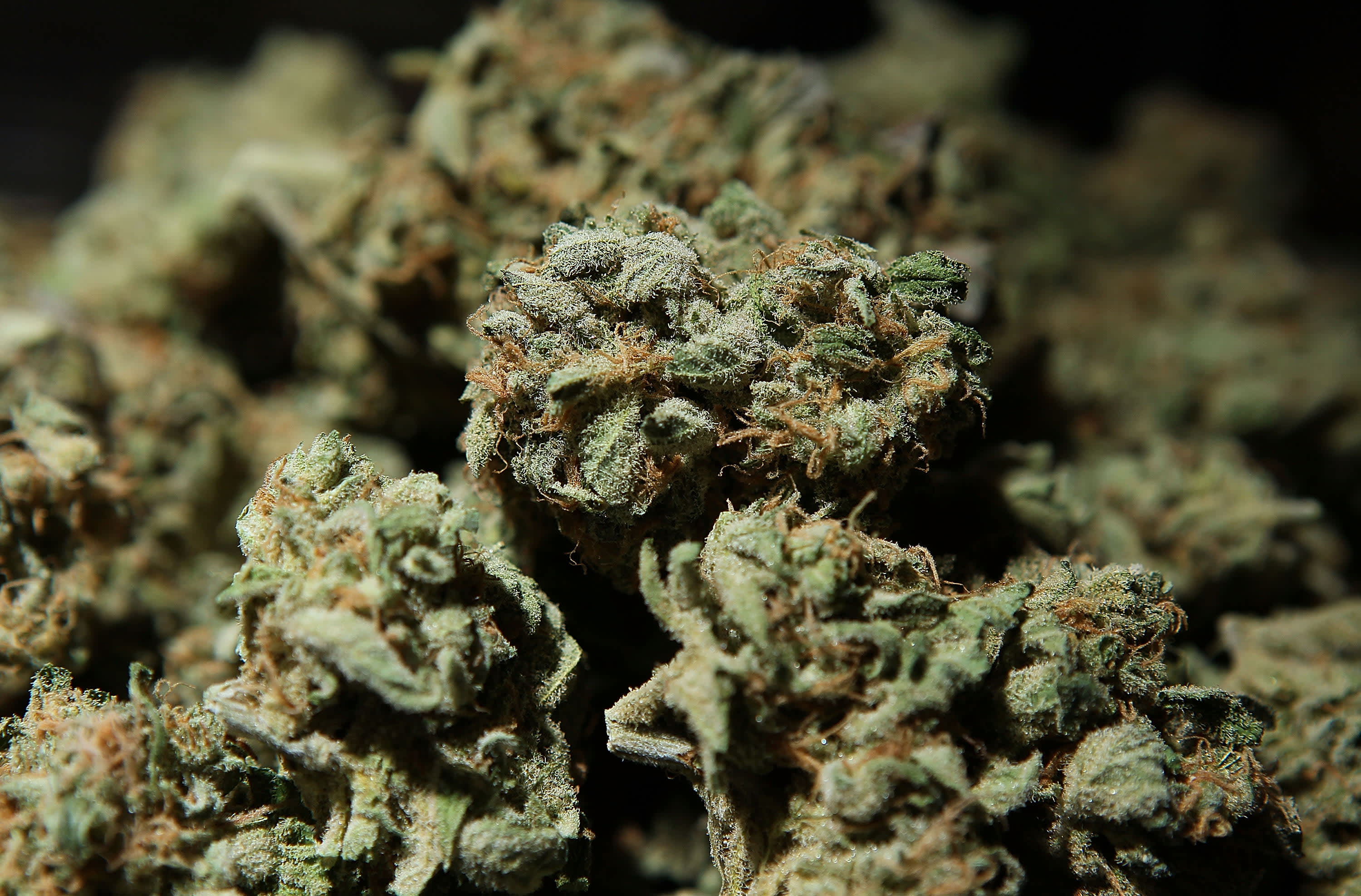
A bowl of medicinal marijuana.
Justin Sullivan | Getty Images
Cannabis investors in the last two weeks have seen a whipsaw that would be in high demand at Six Flags or Hershey Park, but has been painful when investing in an already volatile asset class.
The excitement around legislative catalysts to re-rate the sector higher has hung over the market for the last fifteen months and provided periods of exhilaration. However, it has also left investors nauseous as follow-through has been hard to come by. As a result, an industry that offers extraordinary growth, while supporting multiple social, lifestyle and ESG trends has felt a bit like a roller coaster.
At the root of the recent volatility was the excitement created by a Republican-led legislation package that aims to federally legalize cannabis while leaving the states to govern social equity and criminal justice issues.
On Nov. 5, media sources reported that Rep. Nancy Mace, R-S.C. was leading a competing cannabis reform bill called the States Reform Act that would attempt to fast-forward legislation and steal the issue from Chuck Schumer and the Democratic Party. Cannabis stocks then soared. Some were up more than 50% by the morning of Nov.15, when Congresswoman Mace was to later hold her press conference on the proposed legislation.
But most cannabis stocks gave had given up all their gains by Nov. 23, and some tested fresh lows as the trading momentum gave way to potential realism about the near-term prospects of passage.
So while clearly the investment story seeks federal catalysts, the States Reform Act may not be the reform package that next rallies cannabis stocks. The SAFE Banking Act is another legislative initiative that is more near-term and may be much more important for the industry and investors should be paying attention.
The SAFE Banking Act
Over a year after the Democratic Party regained control of the White House and Congress, it has largely underdelivered on its commitments to passing substantial cannabis reforms. Ironically, it was Republican Congresswoman Mace who reignited the prospects of cannabis reform.
The States Reform Act adopts a common-sense approach that would federally decriminalize cannabis; enable states to regulate their own cannabis markets; allow the federal government to regulate cannabis like the alcohol industry; create a pathway to release or expunge non-violent federal cannabis offenders; ensure veteran access to medical cannabis and apply a workable 3% federal excise tax on cannabis products.
This legislation demonstrates the underlying, and underreported, Republican support for federal cannabis reform. Mace’s bill also emerges at an incredibly opportune moment, as the Senate is set to take up the National Defense Authorization Act (NDAA) this week. While the SAFE Banking Act was included in the House version of the NDAA that passed in October, it remains to be seen whether Senate Democratic leaders will allow SAFE to pass as part of the NDAA in the upcoming conference process. The competing Republican effort from the States Reform Act may finally push Democrats to support SAFE Banking in the NDAA, and SAFE Banking is more important to the industry at this juncture.
While it is encouraging to see Democrats and Republicans laying the groundwork to pass practical cannabis legislation, the SAFE Banking Act begins the complex process of harmonizing state and federal cannabis laws. SAFE Banking evolves commercial banking and payments access to the industry and will begin the process of capital flow to the industry (to be followed by more formal capital markets and exchange listings victories). SAFE Banking will remove structural profitability impediments that lie in IRS tax law around federally illegal businesses. It will also re-rate the industry.
Big stakes for cannabis
The stakes are higher than ever to pass “first win” consequential cannabis reforms, and investors may be big winners along with the industry.
Get ready for a political showdown over cannabis legislation between Democratic leadership in the Senate, moderate Democrats and Republicans in both legislative branches who support SAFE as part of the NDAA and the American public who have reported record levels of support for federal cannabis reform in recent polls.
This could be one of the last chances this year to give the budding cannabis industry the financial resources to flourish and become a productive member of the wider business community. Passing NDAA and the SAFE Banking Amendment will then give Congressional leaders a springboard to achieve broader legalization reforms in 2022. As politicians battle it out, investors may be the big winners as both sides may now be pushing each other to the place the market wants to go.
Tim Seymour is the Portfolio Manager of The Amplify Seymour Cannabis ETF (CNBS), CIO of Seymour Asset Management and a CNBC contributor
Brady Cobb is the Founder and Former CEO of Bluma Wellness /One Plant and Cannabis advocate.




